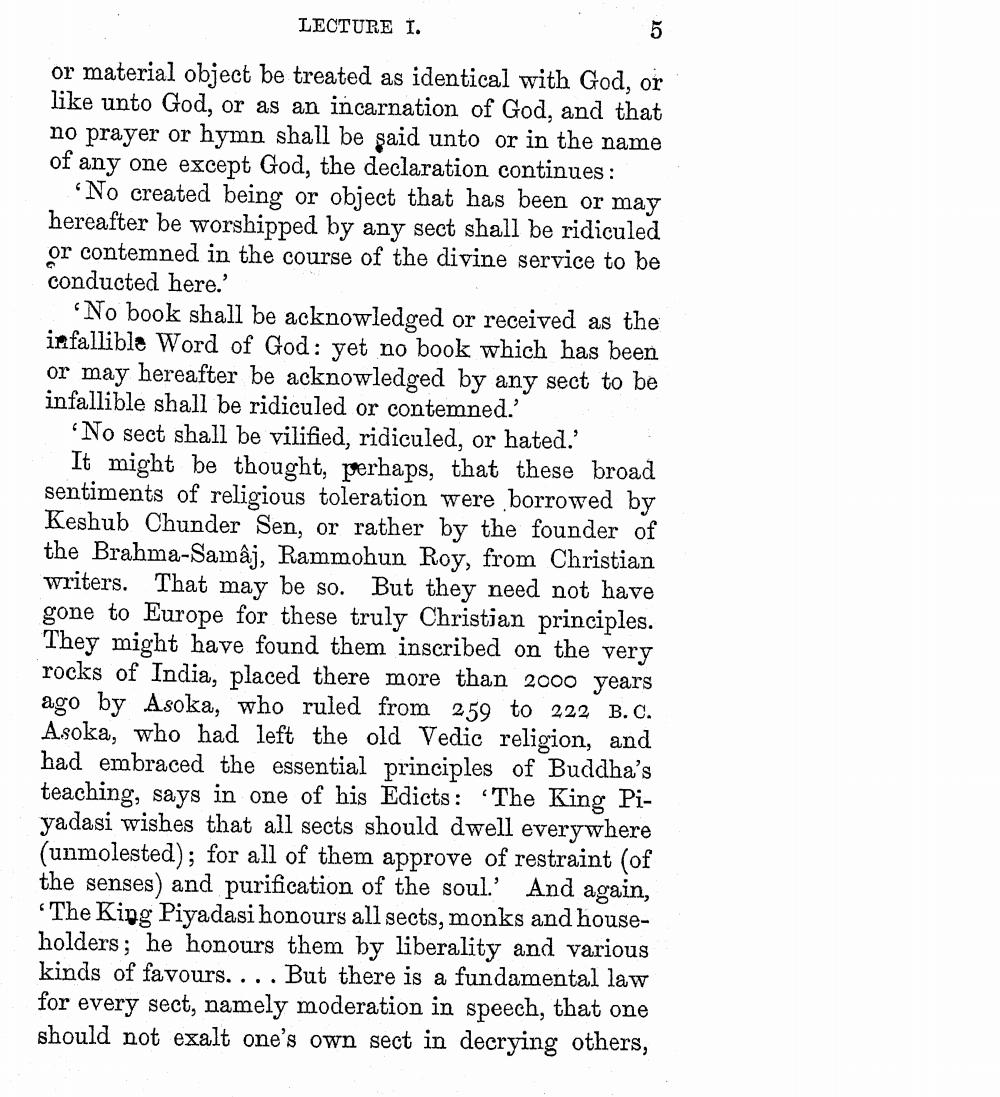________________
LECTURE I.
or material object be treated as identical with God, or like unto God, or as an incarnation of God, and that no prayer or hymn shall be said unto or in the name of any one except God, the declaration continues :
No created being or object that has been or may hereafter be worshipped by any sect shall be ridiculed or contemned in the course of the divine service to be conducted here.'
'No book shall be acknowledged or received as the infallible Word of God: yet no book which has been or may hereafter be acknowledged by any sect to be infallible shall be ridiculed or contemned.'
No sect shall be vilified, ridiculed, or hated.'
It might be thought, perhaps, that these broad sentiments of religious toleration were borrowed by Keshub Chunder Sen, or rather by the founder of the Brahma-Samâj, Rammohun Roy, from Christian writers. That may be so. But they need not have gone to Europe for these truly Christian principles. They might have found them inscribed on the very rocks of India, placed there more than 2000 years ago by Asoka, who ruled from 259 to 222 B.C. Asoka, who had left the old Vedic religion, and had embraced the essential principles of Buddha's teaching, says in one of his Edicts: The King Piyadasi wishes that all sects should dwell everywhere (unmolested); for all of them approve of restraint (of the senses) and purification of the soul.' And again, "The King Pivadasi honours all sects, monks and householders; he honours them by liberality and various kinds of favours. . . . But there is a fundamental law for every sect, namely moderation in speech, that one should not exalt one's own sect in decrying others,




